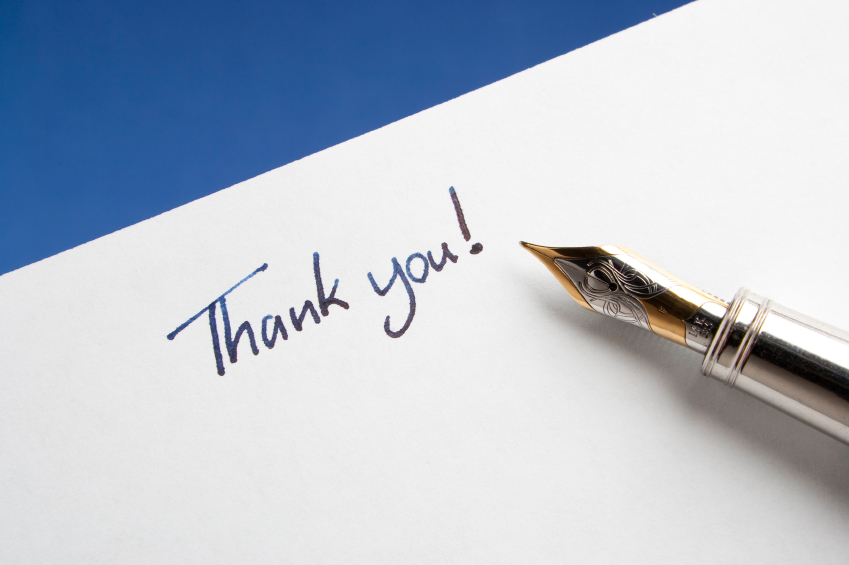Writing the Best Thank You Letter After an Interview
After you return from the residency program interview, it is vital to send a Thank You Letter. A Thank You Letter may not be a “required” part of the residency application process, but it is an important gesture that demonstrates your dedication and determination. Not only that, but it may also improve a program’s impression of you after you have left, raising your standing among the other candidates.
After the Interview
You may be tired after your interview, but there are some steps you can take to help make the Thank You Letter writing task easier and stronger. For example, once you have settled down for the night, take some notes on how the day went.
Ask Yourself:
“What were my overall impressions of the program?”
“Who did I spend time/make a connection with?”
“Was there anything I saw about the facilities or how the program was run that really impressed me?”
Having all of these details written down while they are still fresh will help you personalize your Thank You Letter and show you were paying attention throughout the day.
Who to Send
It goes without saying that you should send a Thank You Letter to at least the Program Director. However, you may also send a brief letter to anyone who spent enough time with you for you to feel as though you made a connection. This could be the Program Coordinator, or anyone else you interviewed with.
With regards to the Program Coordinator, if they helped you out a lot during the interview process, remember to send them their own Thank You Letter. If you didn’t get a chance to really get to know them, you can still mention them in your Thank You Letter to the Program Director for the work you know they’ve done for the program and all of the interview candidates.
When to Send
In general, you want to have the Thank You Letter written within 48 hours of the interview. Send the letter so it arrives no later than a week after the interview.
How to Send
The two main methods of sending a Thank You Letter are email and postal mail.
If the program has made any indication they will be making their decisions shortly, consider email. Emails get to the programs faster, but run the risk of getting ignored among the many emails programs receive.
If you have more time to work with, send a letter or card in the mail. If you have legible handwriting you may handwrite the letter. If your handwriting is questionable or hard to read, type out the letter and hand sign it. You may send a letter on regular paper, paper with a header or a card. If you choose to send a card, make sure it is conservative. Minimal design, little color and no sparkles.
If there is an appropriate moment after the interview, you may ask the Program Coordinator for the best way to send Thank You Letters. Some programs have a preference, others do not, but it doesn’t hurt to ask.
What to Say
Of course, the most important part is the content of the letter. The general format of a Thank You Letter remains the same. The letter should be short, but sweet. Generally keep it around 2 to 3 paragraphs. Any longer and the program might not read all of it.
It should open with your thanks, specific aspects of the day you liked, and a reaffirmation that you are hoping to see them again.
Some potential topics are:
- What you saw
- Who you met
- Good experiences you had
A note to remember: It’s ok to look at examples for inspiration but your words need to be entirely your own. Do not use templates or anyone else’s words to write your Thank You Letter.
What NOT to Say
This is not the place to bring up:
- Anything negative or complaints about the program or your time there
- Benefits such as vacation time, pay, lower hours, and so on
A Thank You Letter is the perfect way to follow up an interview experience and express to the program you are genuinely excited to become a part of their residency team. You don’t have to overdo it, just keep it honest, enthusiastic and grateful and you will get the right message across.



Pingback: About Sending a Letter Of Intent | Match A Resident
Pingback: 2021-2022 Residency Application Timeline and Checklist